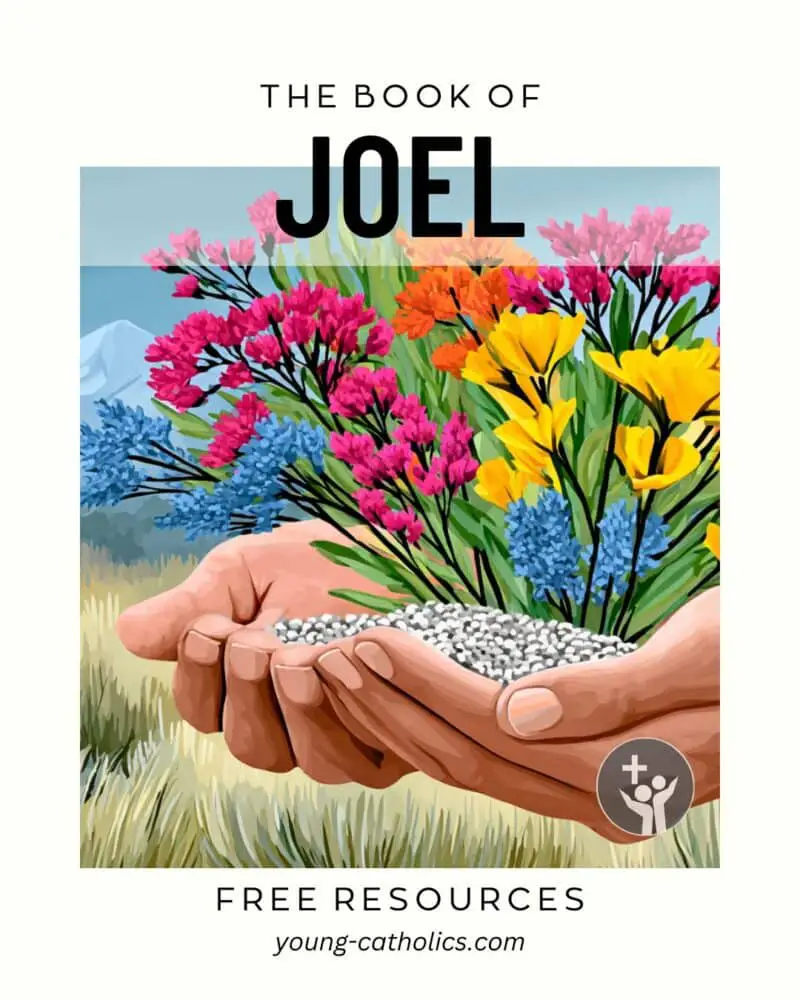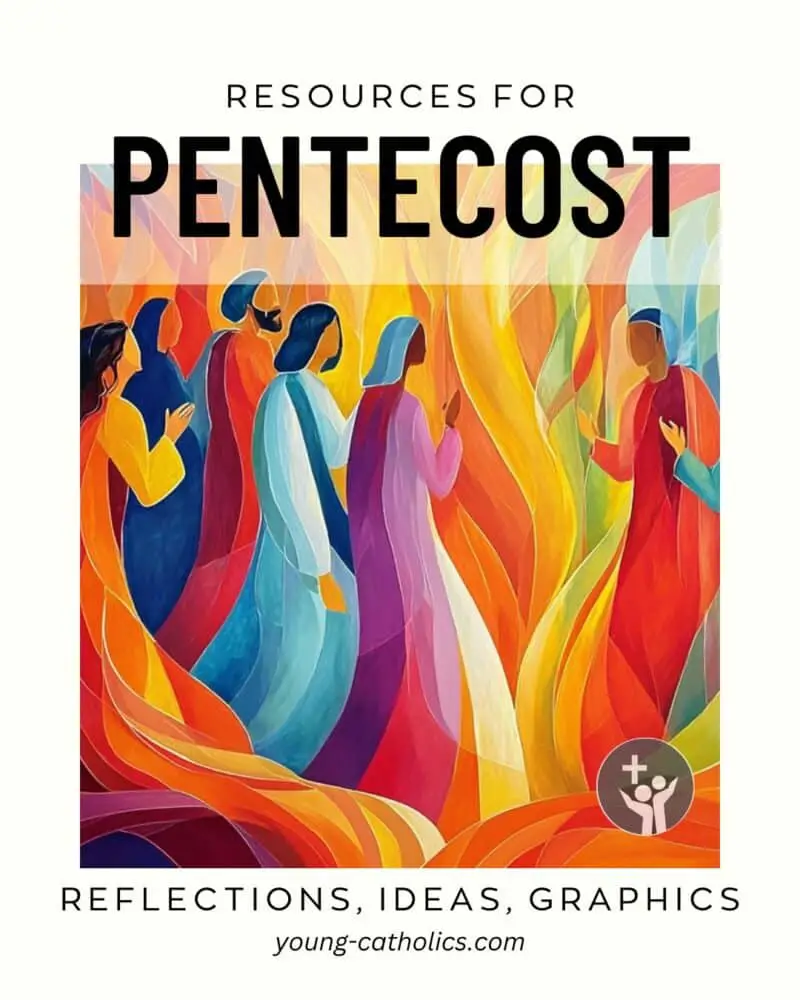The Book of Joel

The Book of Joel is one of the shorter books in the Old Testament. It is part of the group known as the Minor Prophets. This does not mean it is less important. It simply means it is shorter in length. Joel’s message is serious and urgent. He speaks of a crisis that touches every part of life.
Joel describes a great disaster. A swarm of locusts has destroyed the crops. There is no food, no grain for offering, and the people are in deep trouble. Joel sees this not just as a natural event, but as a wake-up call from God. He calls everyone to stop and think. He tells the people to fast, pray, and return to the Lord with all their hearts.
But the message is not all warning. Joel also speaks of hope. He says that God is kind and full of mercy. If the people return to God, they will be forgiven. Joel promises that better days will come. He speaks of a time when the land will be healed and God’s spirit will be poured out on everyone.
Joel’s words were meant for his own time, but they speak to us too. We all face times when things fall apart. Joel reminds us to turn to God in those moments. He teaches us to trust that God can bring good even after great loss. His message is simple: turn back to God and find new life.
Who Wrote Joel and What Was Happening Then?
The Book of Joel does not tell us much about the author. We know his name was Joel, the son of Pethuel. That is all the book says. We do not hear about him in other parts of the Bible. He simply shows up, gives his message, and leaves the rest to God.
It is also hard to know exactly when Joel lived. Some think he lived very early, maybe before the Babylonian exile. Others believe he came much later, after the people returned to Jerusalem. The book gives a few clues, but nothing clear. What stands out most is the locust plague. Joel uses it to speak about a much bigger danger.
The land had been hit hard. Crops were gone. Joy had dried up. The people were shaken. This is the setting for Joel’s message. He calls the people to wake up and cry out to the Lord. He warns of a greater day coming—what he calls the day of the Lord.
Even without a clear date, Joel’s message still speaks to many times and places. His words reach into moments of fear, loss, and change. He reminds us that in hard times, we are called to return to God.
Poetry, Pictures, and Powerful Warnings
The Book of Joel is written like a poem. It does not tell a story from beginning to end like some books do. Instead, it uses strong images and short messages. Joel speaks in a way that grabs attention. He wants people to feel the weight of what is happening.
He talks about locusts like an army. He describes smoke, fire, and darkness. These pictures help the reader see and feel the danger. He also uses short lines that repeat ideas. This makes his message easy to remember and share. His style is full of energy and emotion.
Joel moves quickly from warning to hope. He shows how things fall apart, but then speaks of healing and peace. He talks about dreams, visions, and the Spirit being poured out. These images fill the mind and heart with meaning.
Even though Joel is short, his words are full of life. His poetic style makes his message clear and strong.
What Joel Teaches Us About Faith and God
The Book of Joel shares clear themes that connect with Catholic teaching. It shows how God is always ready to forgive. It reminds us that we must turn back to God when we sin. Joel also points to the coming of the Holy Spirit, which is important in the Church today.
Here are some key themes:
- Repentance: Joel tells the people to return to God with fasting, prayer, and sorrow for sin. Catholics do this during Lent and other times of penance.
- The Day of the Lord: Joel warns about a day of judgment. The Church teaches that we must always be ready for the return of Christ.
- God’s Mercy: Even when the people sin, Joel says God is kind and full of mercy. Catholics believe God forgives all who truly repent.
- The Holy Spirit: Joel speaks of a time when God will pour out His Spirit on all people. This was fulfilled at Pentecost and still continues in the life of the Church.
- Hope for the Future: Joel promises that God will restore what was lost. The Church teaches that God can bring healing and new life after hardship.
These themes help us trust in God’s care and call us to live in faith, even when life is hard.
Breaking Down the Book of Joel
The Book of Joel is short but clear. It has three main parts. Each section has its own focus. These sections help us understand the message step by step. Below is a simple breakdown with verses.
- A Call to Wake Up (Joel 1:1–2:17)
This part begins with a warning. A swarm of locusts has destroyed the land. Joel says this disaster is a sign that people must return to God. He calls for fasting, prayer, and sorrow for sin. Everyone is asked to join—young, old, leaders, and priests. - God Responds with Mercy (Joel 2:18–3:1)
Here, God shows kindness. He promises to heal the land and bring back joy. The crops will grow again. Joel speaks about the Spirit being poured out on all people. This points to Pentecost and life in the Church. - The Day of the Lord (Joel 3:2–3:21)
In this last part, Joel looks to the future. God will bring justice. The nations will be judged. But for God’s people, there will be peace and safety. Jerusalem will be holy again.
Each section builds on the last. Joel moves from warning, to hope, to promise. The book shows us that God is always ready to forgive and bless His people.
Why Joel Still Matters Today
The message of Joel is not just for the past. It still speaks to us now. Life today can feel just as uncertain as it did in Joel’s time. We face disasters, sickness, war, and trouble. Joel shows us how to turn to God in those moments.
Joel reminds us to stop and listen. When things go wrong, we should not panic or give up. We should pray, fast, and return to God. This is what the Church asks us to do during Lent. It is also what we can do anytime we feel far from God.
His words about the Spirit are still true. At Pentecost, the Holy Spirit was given to all believers. That same Spirit helps guide the Church today. We can still dream dreams, speak truth, and listen to God’s call.
Joel helps us trust that God is always with us. Even when things look dark, God can bring hope and healing. That message is just as needed now as it was then.
Joel at Mass: When We Hear His Words
The Book of Joel is not read often at Mass, but it appears at key times. His message fits moments of change, warning, and hope. When we hear Joel in the lectionary, it usually connects to themes of repentance and renewal.
Joel 2:12-18 is read every year on Ash Wednesday. This reading calls us to return to the Lord with fasting, weeping, and prayer. It sets the tone for Lent. It reminds us that God is full of mercy and wants us to come back to Him.
Joel 3:1-5 is sometimes read at Pentecost. This passage speaks about the Spirit being poured out on all people. Peter quotes it in the Book of Acts when the Holy Spirit comes to the apostles. It reminds us that God’s Spirit is alive in the Church today.
Though short, Joel’s voice is strong in the liturgy. His words call us to turn to God and trust in His care.

Ash Wednesday
Come Back to God with Your Whole Heart
In Joel 2:12-18, the people are called to return to God with prayer, fasting, and sorrow for their sins. This call is not just for a few, but for everyone—young and old, leaders and families. The message is urgent and serious. It’s a time to pause and turn away from sin.
God is full of mercy and wants His people to come back to Him. The passage shows that God listens when we are truly sorry. The priests are told to lead the way by asking for help and forgiveness. This reading sets the tone for Ash Wednesday and the whole season of Lent. It reminds us that God always welcomes us back.

Pentecost Vigil Mass
The Spirit Will Be for Everyone
In Joel 3:1-5, God promises to pour out His Spirit on all people. This means men and women, young and old, rich and poor. Everyone will be able to speak God’s message, see dreams, and hear His voice. It is a sign that God is close and active in the lives of His people.
This promise is fulfilled at Pentecost, when the Holy Spirit comes upon the apostles. The early Church sees this moment as the beginning of a new time. God’s Spirit is no longer just for a few leaders. It is for the whole Church. This reading reminds us that the Spirit still guides and strengthens us today.
At Weekday Masses
- Friday of the 27th Week in Ordinary Time I – Joel 1:13-15; 2:1-2: The Day of the Lord Is Near
- Saturday of the 17th Week in Ordinary Time I – Joel 4:12-21: The Lord’s Judgment and Promise
Resources
A Call to Come Back
In this episode of the Bible in a Year Podcast, Fr. Mike Schmitz talks about the first two chapters of the book of Joel. He explains that Joel speaks after a huge disaster in Judah, a plague of locusts. The land is ruined, and the people are shaken. But Joel says something worse is coming.
Fr. Mike shares how Joel uses the locusts as a warning. An invading army will bring even more destruction. Joel calls this the “day of the Lord.” It is a time of judgment. But it is also a time to turn back to God.
Fr. Mike points out how God, through Joel, still invites the people to return. Even after the warning, God says, “Yet even now, return to me.” Fr. Mike says this shows that God wants our hearts, not just outward signs.
Joel chapter 2 ends with a promise. Fr. Mike highlights the verse where God says, “I will restore to you the years the locust has eaten.” God wants to heal more than just the land. He wants to heal the time that was lost.
Joel’s Warning and the Hope of Pentecost
In this episode of the Bible in a Year Podcast, Fr. Mike Schmitz talks about Joel chapter 3 and finishes his reflection on the book of Joel. He reminds us of the strong message in chapter 2, where God says He will pour out His Spirit on all people. Fr. Mike explains that this was fulfilled at Pentecost, when Peter quoted Joel during his speech. Joel’s words pointed to a real event that came true.
Fr. Mike explains how Joel shows both judgment and hope. There is the “day of the Lord,” when God brings justice. But God also invites people to come back to Him. Joel ends with a picture of healing and blessing for those who return.
Fr. Mike also notes a big difference between Joel and Isaiah. Isaiah says people will turn swords into plowshares. Joel says the opposite—turn plowshares into swords. Fr. Mike says Joel is warning people to get ready for battle. It shows that sometimes we face hard things in a broken world.
But this fight isn’t just physical. Fr. Mike reminds us that the real fight is spiritual. He says we battle against evil, both around us and inside us. He ends by reminding us that we need each other, and we need to listen for God’s voice, even in pain.

The Bible
If you want to learn more about the Bible, check out this resource. It gives a clear overview of its books, themes, and why it matters for Catholics today. It makes the big picture easy to follow.
This guide can help readers see how the Bible shapes our faith. It offers simple summaries and links deeper study. Spend a few minutes on that page, and you may find new paths to grow in prayer and understanding.
Social Media Graphics and Bulletin Artwork
From Desolation to Bloom

Bring the message of renewal and hope from the Book of Joel to your parish or classroom. This image, inspired by Joel’s vision of restoration after judgment, is available for download to use in bulletins, newsletters, and other Catholic resources.
Perfect for Lent or any reflection on repentance and new life. Use it to spark prayer and conversation.
Paid subscribers may download a large copy this digital artwork without watermarks, suitable for use in bulletins, social media, newsletters, etc., free of charge by clicking here. You must be logged in as a paid subscriber to access the file.
Only current paid subscribers have the rights to use the artwork.
Questions and Answers About the Book of Joel
Who was Joel?
Joel was a prophet in the Old Testament. We do not know much about him. The Bible only tells us he was the son of Pethuel. He shared a message from God during a time of trouble.
What is the Book of Joel about?
Joel talks about a disaster caused by locusts. He uses this event to warn the people and call them back to God. He also speaks about hope, mercy, and the Holy Spirit.
Why is Joel important for Catholics?
Joel reminds us to turn back to God, especially in hard times. He also speaks about the Holy Spirit, which connects to Pentecost. His message helps us prepare our hearts during Lent.
What is the “day of the Lord”?
The day of the Lord is a time when God acts in a big way. It can bring judgment, but also healing and new life. Joel says we must be ready for it.
Locusts, Warnings, and Hope
The Book of Joel is a short but strong message in the Old Testament. It begins with a disaster. A swarm of locusts has destroyed the crops and shaken the land. Joel tells the people this is a time to wake up. He says they should stop what they are doing and return to God.
Joel speaks of the “day of the Lord.” This is a time when God will act in a big way. It could mean judgment, but it also brings hope. Joel calls everyone to fast, pray, and seek God’s mercy. He reminds them that God is kind and ready to forgive.
The second half of the book brings comfort. God answers the people and promises to heal the land. Joel also speaks of the Spirit being poured out on all people. Catholics hear this reading at Pentecost. It reminds us that God is still with us through the Holy Spirit.
Joel’s message still matters today. When life feels uncertain, Joel reminds us to turn back to God. His words are clear: repent, trust, and wait for God to bring healing and peace. Even after loss, there is hope.
Your Turn
Take a few minutes to read the Book of Joel. It’s only three short chapters, but the message is strong. Think about what Joel says about turning back to God. Notice how he moves from warning to hope.
Have you ever felt like everything was falling apart? Did you find hope again? Share your thoughts in the comment section. Others may learn from your experience. Let’s grow in faith together.


Leave a Reply